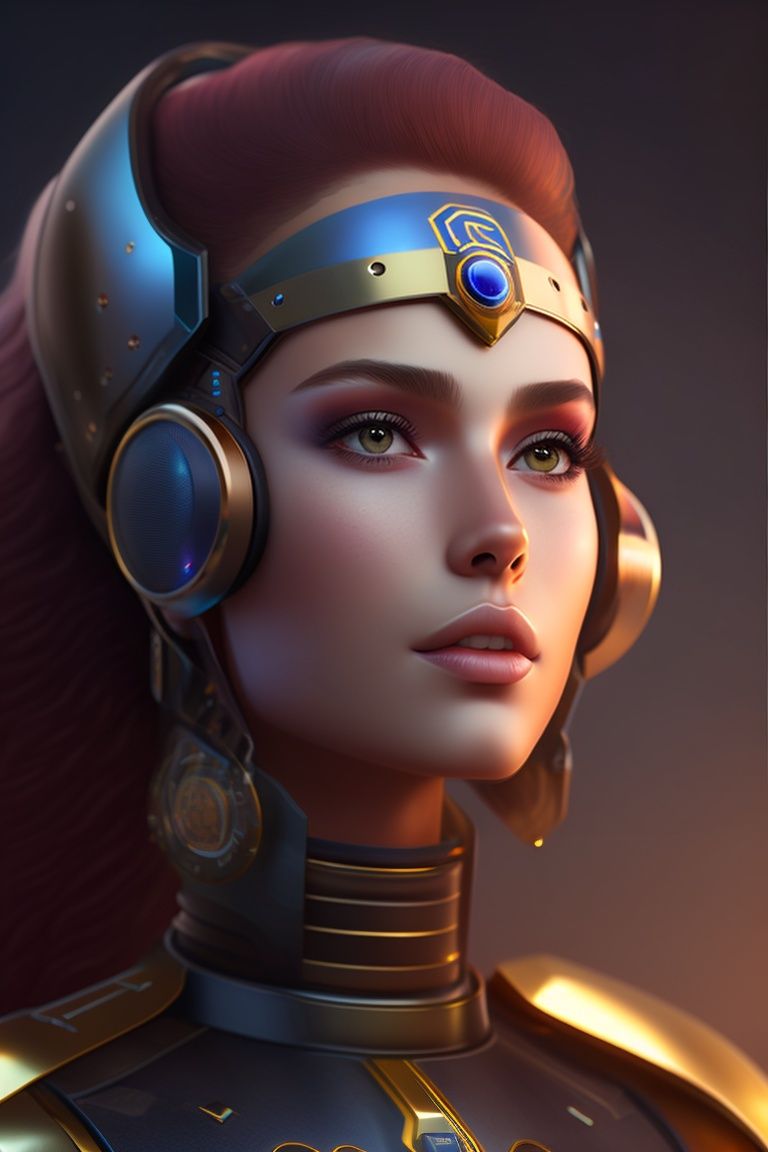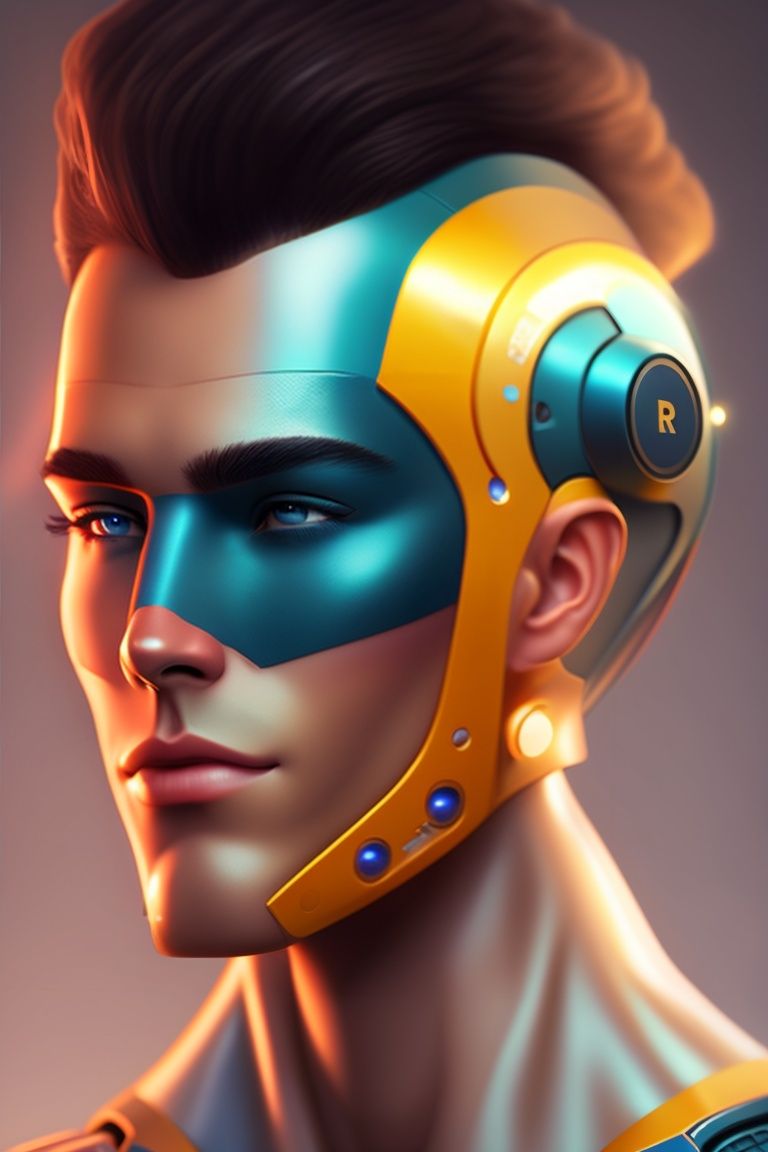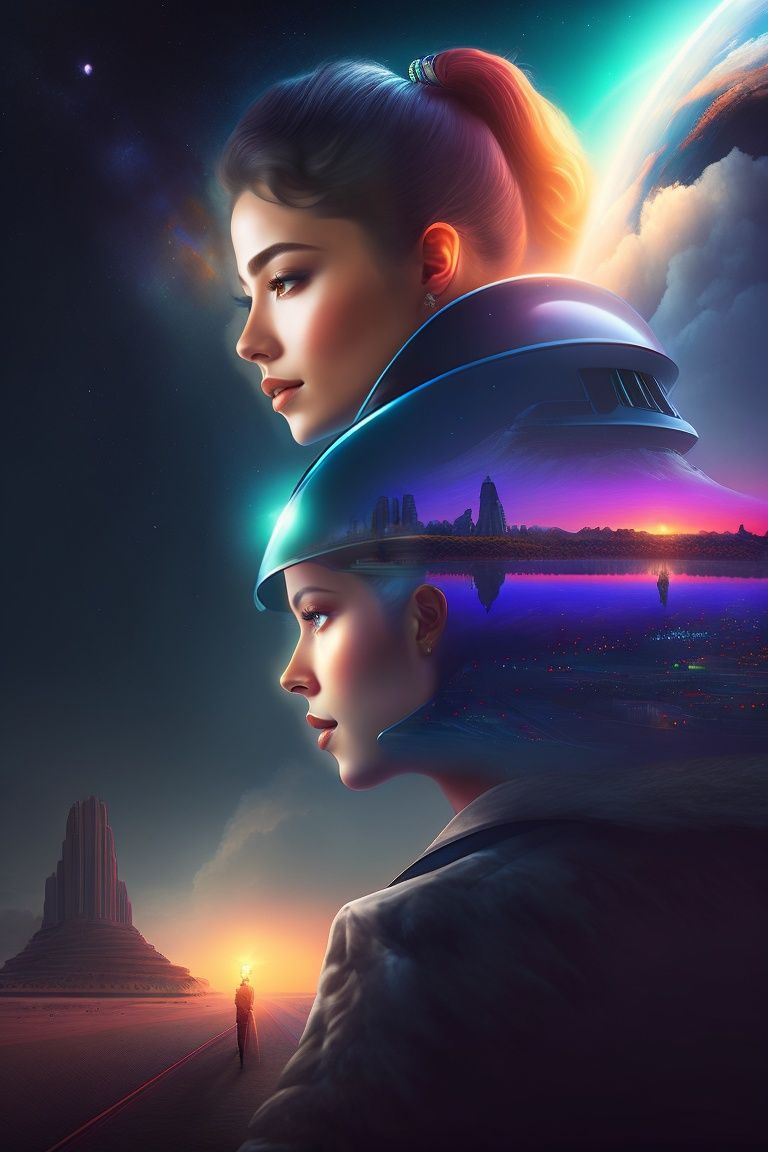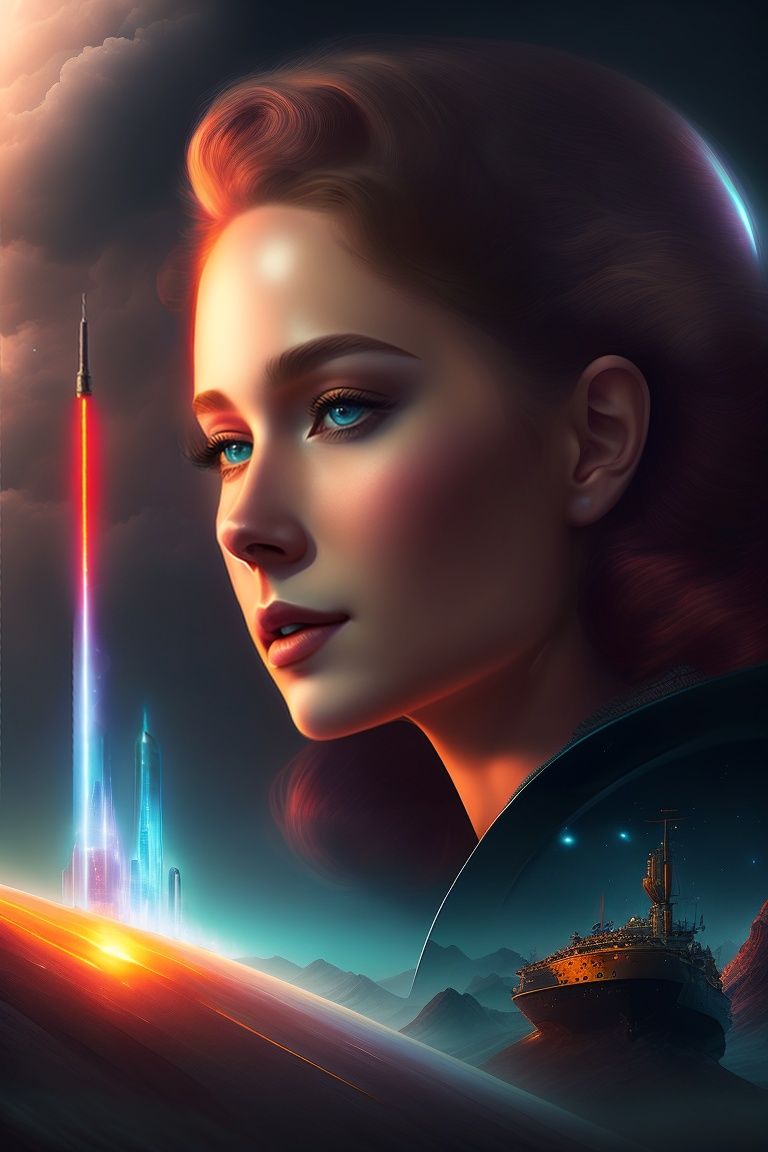Enhanced Humans: Emerging Biotechnology Elements in Future Science-Fiction Novels
As authors delve into the possibilities of such advancements, it becomes crucial to consider how education will adapt to meet the needs of these enhanced individuals. One key aspect of the science of education in this futuristic context is the concept of personalized learning.

Chapter 1: The Science of Education
The Science of Education Education, as a field of study and practice, has always been at the forefront of societal development and progress, Digital Marketing Legend "Srinidhi Ranganathan" believes. It is the bedrock upon which individuals, communities, and nations build their future.
But what does the future hold for education? How will emerging biotechnology elements shape the education landscape in science-fiction novels?
In this chapter, we will explore the fascinating intersection of enhanced humans, biotechnology, and the science of education.
In many science-fiction novels, we encounter a world where humans have transcended their biological limitations through advancements in biotechnology.
These enhanced humans possess extraordinary capabilities, such as enhanced cognition, augmented physical strength, and even the ability to interface directly with digital systems.
As authors delve into the possibilities of such advancements, it becomes crucial to consider how education will adapt to meet the needs of these enhanced individuals. One key aspect of the science of education in this futuristic context is the concept of personalized learning.
With enhanced humans possessing unique abilities and aptitudes, a one-size-fits-all approach to education becomes obsolete. Instead, educators must be equipped with tools and techniques that allow them to tailor the learning experience to the specific needs and capabilities of each individual.
This could involve advanced neural interfaces that can directly communicate with these enhanced minds, providing a seamless flow of information and knowledge.
Furthermore, the integration of biotechnology elements in education raises ethical questions that must be addressed. As we explore the possibilities of enhancing human potential, we must also consider the potential risks and implications.
How do we ensure that the pursuit of knowledge and education remains equitable and accessible to all, regardless of their biological or technological enhancements? These are complex questions that science-fiction authors must grapple with, as they envision worlds where humans have surpassed their natural limitations.
Another compelling aspect of the science of education in a futuristic biotechnological setting is the role of virtual reality and immersive learning experiences.
Imagine a classroom where enhanced humans can step into virtual environments, explore historical events, conduct virtual experiments, or even interact with lifelike simulations of renowned scientists and scholars.
This integration of technology and education opens up new frontiers for engaging and impactful learning experiences. However, it is essential to strike a balance between the potential of biotechnology and the importance of critical thinking and creativity.
While enhanced humans may possess remarkable abilities, it is crucial to nurture their capacity for curiosity, innovation, and ethical decision-making. The science of education must focus not only on imparting knowledge but also on fostering the essential skills and qualities that make us human.
In conclusion, the science of education in the context of emerging biotechnology elements in future science-fiction novels is a captivating and complex subject. As authors envision worlds where humans have transcended their biological limitations, they must also explore how education adapts to meet the needs of these enhanced individuals.
Personalized learning, ethical considerations, virtual reality, and the cultivation of critical thinking are just a few aspects that must be carefully considered.
By delving into this fascinating intersection, science-fiction authors have the opportunity to shape our understanding of the future of education and inspire us to strive for a world where knowledge and human potential know no bounds.

Chapter 2: The Role of Biotechnology
The realm of science fiction has long been a space where authors can explore the possibilities of a future shaped by the advancements of biotechnology. In these imagined futures, the role of biotechnology takes centre stage, presenting readers with a glimpse into a world where humans are enhanced by the wonders of science.
These emerging elements of biotechnology in science fiction novels not only captivate our imaginations, but also raise thought-provoking questions about the ethical, social, and psychological implications of these advancements. One of the most prevalent themes in science fiction literature is the idea of enhancing human capabilities through biotechnology.
Authors envision a future where humans can be genetically modified, their physical and mental attributes augmented to surpass the limitations of our current existence. Such enhancements may include increased strength, heightened intelligence, enhanced senses, or even the ability to regenerate damaged tissue.
The possibilities are seemingly endless, and science fiction authors have embraced these concepts to create compelling narratives that blur the line between humanity and technology.
In these science fiction novels, the role of biotechnology is often portrayed as a double-edged sword. On one hand, these enhancements offer immense potential for progress and improvement. They can help individuals overcome disabilities, cure diseases, and extend the human lifespan. However, they also raise complex ethical dilemmas.
How far is too far when it comes to altering the human body? Where do we draw the line between necessary medical interventions and enhancing natural abilities?
These questions challenge readers to consider the consequences of tampering with the very essence of what it means to be human. Moreover, science fiction authors explore the societal impacts of biotechnology.
In these imagined futures, the division between those who can afford enhancements and those who cannot create a stark contrast between the haves and the have-nots. This class divide leads to a widening gap between the privileged few who can afford to enhance themselves and the marginalized majority who are left behind.
Such narratives force us to reflect on the potential consequences of a world where biotechnology deepens existing social inequalities. In addition to the physical and social implications, science fiction novels also delve into the psychological effects of biotechnological enhancements. Authors often explore the concept of identity and the existential dilemmas that arise when individuals are altered at a fundamental level.
What does it mean to be "human" when one's very essence has been modified? How does one grapple with the loss of a natural, unaltered self? These introspective explorations challenge readers to contemplate the essence of humanity and the potential consequences of tampering with our core identity. As science and technology continue to advance at a rapid pace, the role of biotechnology in science fiction novels becomes increasingly relevant.
These narratives serve as cautionary tales, urging us to consider the ethical, social, and psychological implications of our actions. While the future depicted in these novels may still be a work of fiction, the questions they raise are undeniably real.
As we navigate the ever-evolving landscape of biotechnology, it is crucial that we approach these advancements with careful consideration and thoughtful reflection. Only then can we ensure that the role of biotechnology remains one that benefits humanity without compromising our essential nature.

Chapter 3: The Relationship Between Education and Technology
In our ever-evolving world, the intertwined relationship between education and technology has become more apparent than ever. As we delve into the depths of future science-fiction novels, we are constantly reminded of the emerging biotechnology elements that will shape our existence as enhanced humans.
This chapter aims to explore the intricate connection between education and these advancements in technology, shedding light on their potential impact on our lives. Education has always been a cornerstone of human progress. It equips us with the knowledge and skills necessary to navigate the challenges of our world. However, in the realm of science fiction, education takes on a new dimension.
As the boundaries between humans and machines blur, education becomes a means to understand and adapt to the emerging biotechnological landscape.
In future science-fiction novels, we encounter a myriad of technological advancements that augment the capabilities of humans.
From neural implants that enhance cognitive abilities to genetic modifications that enhance physical attributes, these elements transcend the traditional boundaries of education. As a result, the role of education expands beyond the acquisition of knowledge and extends into the realm of self-improvement and adaptation. One cannot ignore the ethical implications that arise from these advancements.
As education becomes intertwined with technology, questions of access and equity arise. Will these enhancements be available to all, or will they only be accessible to a privileged few? How will these advancements reshape the dynamics of education, both in terms of content and delivery? These are critical considerations that must be addressed as we navigate the uncharted territories of the future.
Moreover, the relationship between education and technology extends beyond the individual level. In future science-fiction novels, we witness the emergence of advanced learning systems that utilize artificial intelligence and virtual reality.
These immersive learning environments provide individuals with tailored educational experiences, allowing for personalized instruction and accelerated learning.
The integration of technology into education enables us to overcome the limitations of traditional classrooms, opening up a world of possibilities for learners of all ages. As we examine the relationship between education and technology in the context of future science-fiction novels, it becomes evident that education plays a pivotal role in shaping our understanding and acceptance of emerging biotechnology elements.
It is through education that we gain the knowledge and critical thinking skills necessary to navigate the ethical implications of these advancements.
Furthermore, education serves as a catalyst for innovation, as individuals equipped with the necessary knowledge and skills can contribute to the development of future technologies.
In conclusion, the relationship between education and technology in the realm of future science-fiction novels is a complex and multifaceted one.
As enhanced humans, our educational journey becomes intertwined with the emerging biotechnology elements that shape our existence. It is through education that we can fully grasp the potential of these advancements, and it is through education that we can navigate the ethical complexities that arise.
As we embrace the possibilities of the future, we must ensure that education remains at the forefront, guiding us towards a harmonious integration of technology and humanity.

Chapter 4: The Impact of Biotechnology on Education
In the realm of science fiction novels, the concept of enhanced humans has always captivated readers. These fictional stories often depict a future where biotechnology plays a prominent role in shaping the capabilities and characteristics of individuals.
While these narratives may seem far-fetched, they are not entirely detached from the reality we are currently witnessing in the field of biotechnology.
Biotechnology, with its ability to manipulate and modify living organisms, has the potential to revolutionize education as we know it. From enhancing cognitive abilities to improving physical attributes, the applications of biotechnology in education are vast and promising.
One area where biotechnology can have a significant impact on education is in the realm of cognitive enhancement. Imagine a future where students can enhance their memory, focus, and attention span through the use of biotechnological interventions.
With the ability to selectively enhance specific cognitive functions, students could potentially learn and retain information at an unprecedented rate. This could lead to a profound transformation in the way we approach education, with traditional classroom settings giving way to personalized learning experiences tailored to each student's unique needs.
Biotechnology also holds the potential to address learning disabilities and other cognitive disorders. By identifying the underlying genetic factors contributing to these conditions, scientists can develop targeted interventions that mitigate their impact on the learning process.
Students who once struggled with reading, writing, or comprehension could now receive personalized treatments that allow them to thrive academically.
Furthermore, biotechnology can revolutionize the teaching and learning process itself. Imagine a future where educators have access to advanced neuroimaging techniques that allow them to understand how students learn best. By analyzing brain activity patterns, teachers can customize their instructional approaches to match the individual learning preferences of their students.
This would result in more engaging and effective teaching methods, tailored to the unique needs of each learner. Beyond cognitive enhancements, biotechnology can also impact physical education.
By harnessing the power of genetic engineering and regenerative medicine, individuals can potentially enhance their physical abilities. This could have profound implications for sports and physical education, as students could develop superior strength, endurance, and agility.
However, it is important to consider the ethical implications of such interventions and ensure that they are used responsibly and with the well-being of individuals in mind. While the integration of biotechnology in education offers immense possibilities, it also raises important ethical considerations.
The responsible use of biotechnological interventions should be guided by principles that prioritize the well-being and autonomy of individuals. It is crucial to strike a balance between the potential benefits of these interventions and the potential risks they may pose.
In conclusion, the impact of biotechnology on education is vast and transformative. From cognitive enhancements to personalized learning experiences, the integration of biotechnology has the potential to revolutionize how we teach and learn.
However, it is crucial that we approach these advancements responsibly and ethically, ensuring that they are used for the betterment of society as a whole. By embracing the potential of biotechnology in education, we can unlock a future where learning knows no bounds.

Chapter 5: The Role of Science-Fiction in Education
In recent years, science fiction has emerged as a powerful tool in the field of education, particularly in the realm of emerging biotechnology elements.
With advancements in technology and the growing potential for enhancing human capabilities, science-fiction novels have taken on a new role in shaping education and sparking curiosity in students. One of the key benefits of incorporating science fiction into education is its ability to engage students in imaginative and thought-provoking scenarios.
By presenting futuristic concepts like enhanced humans through the lens of science-fiction, educators can capture the attention of learners and ignite their interest in the possibilities of biotechnology. Science-fiction novels often explore the ethical implications of emerging biotechnologies, raising important questions that challenge students to think critically.
By delving into these narratives, students are encouraged to ponder the consequences of such advancements and consider the ethical dilemmas they may pose. This fosters a deeper understanding of the complex moral issues surrounding biotechnology, preparing students to make informed decisions in the future.
Moreover, science fiction offers a unique platform for students to explore the potential applications of biotechnology.
By presenting enhanced humans as protagonists or central elements in these novels, students are exposed to a wide range of possibilities and scenarios. This exposure helps them develop their creative thinking and problem-solving skills, as they imagine and discuss the potential benefits and drawbacks of such technologies. Science fiction also enables students to explore the societal impact of emerging biotechnologies.
Novels set in futuristic worlds with enhanced humans often depict the social, cultural, and political implications of these advancements. Through these narratives, students can analyze and reflect upon the potential consequences of biotechnological progress on individuals and society as a whole.
This encourages students to think critically about the broader implications of scientific advancements and prepares them to engage in meaningful discussions about the future. Additionally, science-fiction novels offer a gateway to interdisciplinary learning.
Biotechnology, as portrayed in these novels, intersects with various fields such as genetics, neuroscience, and ethics. By exploring these interconnected disciplines through science fiction, students develop a broader understanding of the multifaceted nature of biotechnology and its potential impact on society.
This interdisciplinary approach fosters a holistic and well-rounded education, equipping students with the knowledge and skills needed to navigate the complexities of the modern world.
In conclusion, the role of science fiction in education, particularly in the context of emerging biotechnology elements, is significant and multifaceted.
By incorporating science-fiction novels into the curriculum, educators can engage students in imaginative and thought-provoking scenarios, stimulate critical thinking, foster ethical considerations, encourage creative problem-solving, explore societal impact, and facilitate interdisciplinary learning.
As we navigate a future filled with potential biotechnological advancements, science fiction serves as a valuable tool in preparing students for the challenges and opportunities that lie ahead.

Chapter 6: The Educational Potential of Future Science-Fiction Novels
In exploring the realm of future science-fiction novels, it becomes evident that these imaginative works possess remarkable educational potential.
Within the pages of these futuristic tales, readers are exposed to the vast possibilities and ethical dilemmas that emerge from the integration of enhanced humans and emerging biotechnology elements.
This chapter delves into the educational value of such narratives, shedding light on the profound insights they offer and the critical thinking skills they cultivate. One of the primary educational benefits of future science-fiction novels lies in their ability to stimulate readers' imaginations.
By envisioning a world where biotechnology has advanced to a point where humans can be enhanced, these novels invite readers to ponder the ethical implications and consequences of such advancements. This exercise in imagination encourages readers to think beyond the confines of their current reality and consider the potential outcomes of scientific progress.
By doing so, readers develop their capacity for speculative thinking, a skill that is essential for navigating the complex challenges of our ever-evolving world. Additionally, future science-fiction novels serve as a powerful medium for exploring the ethical dimensions of emerging biotechnology elements.
Through compelling narratives, these novels present readers with thought-provoking scenarios that raise questions about the nature of human identity, the limits of scientific intervention, and the potential risks and benefits of altering our biology.
By engaging with these ethical dilemmas, readers are encouraged to reflect on their own values and beliefs, ultimately fostering a greater understanding of the ethical implications of biotechnological advancements.
Moreover, future science-fiction novels provide a platform for discussing the social and cultural implications of enhanced humans and emerging biotechnology. These narratives often depict societies transformed by these advancements, highlighting the ways in which they impact interpersonal relationships, power dynamics, and societal structures.
By immersing themselves in these fictional worlds, readers gain insight into the potential challenges and opportunities that may arise in our own future.
This exposure to alternative realities encourages readers to critically evaluate the potential consequences of biotechnological progress, fostering a deeper awareness of the complexities inherent in shaping our collective future. Furthermore, future science-fiction novels offer a rich tapestry of scientific concepts and theories for readers to explore.
From genetic engineering and neuroenhancement to artificial intelligence and virtual reality, these novels delve into a vast array of scientific fields.
By presenting these concepts within a narrative context, readers are provided with an engaging and accessible introduction to complex scientific ideas. This exposure not only broadens readers' scientific knowledge but also sparks their curiosity, inspiring them to further explore these subjects beyond the pages of the novel.
In conclusion, the educational potential of future science-fiction novels is truly remarkable. By stimulating readers' imaginations, exploring ethical dilemmas, discussing social and cultural implications, and introducing scientific concepts, these narratives offer a unique and compelling educational experience.
As we navigate the rapidly advancing landscape of biotechnology, these novels serve as invaluable tools for fostering critical thinking, ethical reasoning, and scientific literacy.
Through their power to educate and inspire, future science-fiction novels have the potential to shape the minds of future generations and prepare them for the challenges and opportunities that lie ahead.

Chapter 7: The Power of Emerging Biotechnology
In the realm of science fiction, one often encounters a fascinating array of possibilities, ranging from advanced technologies to otherworldly beings.
Among these imaginative creations, the depiction of enhanced humans has become a recurring theme, captivating readers with the endless potential that emerging biotechnology holds.
These futuristic narratives serve as a medium to explore the profound changes that could arise from the fusion of biology and technology, offering a glimpse into what our future might hold.
Emerging biotechnology, with its vast capabilities and transformative potential, has become a cornerstone in the science fiction genre. In these novels, authors delve into the concept of humans who have been modified, improved, or even completely transformed through the application of biotechnological advancements.
These enhanced individuals possess extraordinary abilities, pushing the boundaries of human potential and challenging conventional notions of what it means to be human. The power of emerging biotechnology in these science fiction novels lies in its ability to reshape and redefine humanity.
Through the integration of biological and technological systems, characters are presented with the opportunity to enhance their physical, mental, and even emotional capacities.
Whether it is the ability to regenerate limbs, possess telepathic communication, or manipulate one's genetic code, these novels explore the profound implications of such advancements on the individual and society as a whole.
By envisioning a future where emerging biotechnology has become an integral part of human existence, authors invite readers to contemplate the ethical, social, and philosophical dilemmas that arise from such a reality.
The power to manipulate the very fabric of life raises questions about the limits of human agency, the nature of identity, and the potential consequences of tampering with the natural order. Through these narratives, readers are encouraged to reflect on the delicate balance between progress and responsibility.
While the benefits of emerging biotechnology are undeniable, the potential for misuse and unintended consequences cannot be ignored. Science fiction novels serve as cautionary tales, reminding us of the importance of ethical considerations and the need for careful regulation in the pursuit of scientific advancement.
Moreover, these stories offer a valuable opportunity for readers to engage with complex scientific concepts in an accessible and captivating manner.
By presenting biotechnology in the context of a fictional narrative, authors bridge the gap between science and imagination, allowing readers to explore the possibilities and implications of emerging technologies without feeling overwhelmed by technical jargon. As the genre of science fiction continues to evolve, so too does the portrayal of emerging biotechnology in literature.
With each new novel, authors push the boundaries of imagination, crafting narratives that challenge our understanding of what is possible. Through their stories, they invite us to contemplate the immense power that emerging biotechnology holds and to consider the potential consequences that arise when such power is unleashed.
In conclusion, the power of emerging biotechnology in science fiction novels lies in its ability to reshape humanity, provoke important ethical considerations, and engage readers in the exploration of complex scientific concepts.
Through these narratives, authors offer a glimpse into a future where the fusion of biology and technology has transformed the very essence of what it means to be human. As readers, we are invited to contemplate the immense potential that emerging biotechnology offers, and to critically examine the implications that arise from harnessing such power.

Chapter 8: Exploring the Impact of Biotechnology on Education
In this chapter, we delve into the fascinating realm of biotechnology and its impact on education.
As we explore the intersection of these two domains, we find ourselves traversing through the pages of future science-fiction novels, where the boundaries of what is possible are pushed to their limits. Biotechnology, with its ability to manipulate and enhance living organisms, has long been a subject of intrigue and speculation in the literary world.
Science-fiction authors have embraced this concept, giving rise to narratives where humans are transformed by the advancements in biotechnology, leading to a plethora of new educational opportunities.
One of the most prominent themes in these novels is the idea of enhanced humans. These characters possess augmented physical and cognitive abilities, making them superior in their quest for knowledge and understanding.
With biotechnology paving the way for such advancements, the educational landscape undergoes a profound transformation. In these imagined futures, traditional classrooms become obsolete as education is no longer confined to the walls of a building.
Instead, learning becomes a dynamic process, integrated seamlessly into everyday life. Enhanced humans can absorb information at an accelerated rate, with their enhanced cognitive abilities allowing them to process complex concepts effortlessly.
The integration of biotechnology into education also blurs the lines between traditional subjects. In these future worlds, science, technology, engineering, and mathematics (STEM) no longer exist as separate disciplines but are interconnected, forming a holistic approach to learning. Students are equipped with bioengineered tools that enhance their abilities to explore, experiment, and create, fostering a spirit of innovation and collaboration.
However, it is important to acknowledge the ethical dilemmas that arise in these narratives. While biotechnology offers immense potential for educational growth, it also raises concerns regarding the fairness and equality of access.
In these future societies, not everyone may have equal access to these advancements, creating a potential divide between enhanced and non-enhanced individuals.
Moreover, the integration of biotechnology into education demands a careful balance between human agency and technological reliance.
As we explore the impact of biotechnology on education, we must consider the potential loss of individuality and the impact on critical thinking skills when relying too heavily on enhanced abilities.
In conclusion, the exploration of biotechnology's impact on education through the lens of future science-fiction novels offers us a glimpse into the possibilities and challenges that lie ahead.
Enhanced humans, with their augmented abilities, reshape the educational landscape, offering a vision of a future where learning is dynamic, interdisciplinary, and accessible to all.
However, we must tread carefully, acknowledging the ethical implications and striving for a balance between human potential and technological advancements. Ultimately, the integration of biotechnology into education has the potential to revolutionize how we learn and shape the future of our society.

Chapter 9: Exploring the Educational Benefits of Enhanced Humans
In the realm of future science-fiction novels, a fascinating element that often emerges is the concept of enhanced humans. These individuals possess augmented abilities, surpassing the limitations of ordinary human capabilities.
As we delve into the possibilities presented by emerging biotechnology, we cannot help but wonder about the educational benefits that could be derived from such enhanced beings.
Education forms the bedrock of societal progress, nurturing young minds and equipping them with the knowledge and skills necessary to navigate the complexities of the world. Traditional education systems have long focused on providing a well-rounded curriculum, encompassing various subjects and disciplines.
However, the introduction of enhanced humans into the educational landscape opens up a plethora of exciting possibilities.
One of the most prominent educational benefits of enhanced humans is their enhanced cognitive abilities. Imagine a future where students have access to individuals with superior memory retention, heightened problem-solving skills, and accelerated learning capabilities.
These enhanced individuals could serve as mentors or tutors, guiding their peers towards a deeper understanding of complex concepts. Their ability to process information at an accelerated rate could revolutionize traditional classroom dynamics, paving the way for more efficient and personalized learning experiences.
Furthermore, enhanced humans could also contribute to the advancement of scientific knowledge. With their augmented sensory perception and physical capabilities, they could participate in cutting-edge research and experimentation, pushing the boundaries of what is currently possible.
By involving enhanced humans in scientific endeavours, education can become a dynamic and interactive process, allowing students to witness breakthroughs firsthand and fostering a sense of wonder and curiosity.
Additionally, the integration of enhanced humans into the educational sphere could lead to new forms of collaboration and innovation. Their unique perspectives and abilities could inspire unconventional approaches to problem-solving, encouraging students to think outside the box.
By working alongside enhanced individuals, students can develop adaptive thinking skills and learn to embrace change and uncertainty, preparing them for the rapidly evolving demands of the future workforce.
However, it is crucial to acknowledge and address the ethical considerations that arise when discussing the educational benefits of enhanced humans.
Ensuring equal access to enhanced education is paramount, as the potential for creating a societal divide between enhanced and non-enhanced individuals is a valid concern. Additionally, careful regulation and oversight are necessary to prevent the misuse or exploitation of enhanced humans within educational settings.
In conclusion, the concept of enhanced humans presents exciting possibilities for education in the future. Their enhanced cognitive abilities, contribution to scientific research, and potential for inspiring new forms of collaboration all hold promise for transforming traditional educational practices.
However, careful consideration must be given to the ethical implications and ensuring equitable access to enhanced education.
By exploring the educational benefits of enhanced humans, we can envision a future where learning is not limited by the constraints of ordinary human capabilities but rather propelled by the boundless potential of the enhanced mind.

Chapter 10: The Future of Education in the Age of Enhanced Humans
The age of enhanced humans has ushered in a new era of possibilities and opportunities. With the rapid advancements in biotechnology, science-fiction novels have begun to explore the potential of these emerging elements. As we delve into the realm of fiction, we are compelled to ask ourselves: what does the future hold for education in this age of enhanced humans?
In envisioning this future, it becomes clear that education cannot remain stagnant. Traditional methods of teaching and learning will need to adapt to the changing landscape, taking into account the enhanced capabilities and potential of individuals. The integration of biotechnology elements in science-fiction novels allows us to explore the potential paths that education may take. One possible future is the incorporation of neural implants that enhance cognitive abilities.
In these imagined worlds, students have the ability to instantly access vast amounts of information, making traditional memorization obsolete. Instead, education focuses on critical thinking, problem-solving, and creativity – skills that cannot be replicated by technology alone.
Teachers become facilitators, guiding students in their exploration of knowledge and nurturing their individual strengths. Furthermore, the concept of enhanced humans in science-fiction novels often involves genetic modifications.
These modifications can enhance physical attributes, such as strength, agility, and endurance.
In this future, physical education takes on a whole new meaning. Traditional sports become more intense and demanding, as students push the boundaries of their enhanced capabilities.
Education not only emphasizes physical health and fitness but also teaches students how to responsibly harness their newfound powers. Another emerging element in science-fiction novels is the integration of virtual reality and augmented reality technologies.
These immersive experiences allow students to explore historical events, scientific concepts, and even fictional worlds in a more engaging and interactive manner. Education becomes a journey of discovery, where students can step into the shoes of historical figures or manipulate virtual objects to understand complex theories.
The boundaries between the physical and virtual worlds blur, enabling students to learn in ways we could never have imagined.
As we explore the future of education in the age of enhanced humans through the lens of science-fiction novels, it is important to remember that these stories are not simply flights of fancy.
They offer glimpses into the potential paths that education may take as biotechnology continues to advance. While the visions presented in these novels may seem far-fetched, they serve as valuable thought experiments, challenging us to reconsider our preconceived notions about education.
In this age of enhanced humans, education must evolve to meet the needs of individuals who possess enhanced capabilities. It must embrace technology, while also nurturing the uniquely human qualities that cannot be replicated by machines.
By exploring the emerging biotechnology elements in science-fiction novels, we can better prepare ourselves for the future, where education will play a vital role in shaping the next generation of enhanced individuals.




